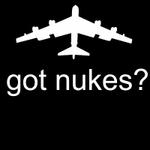Wednesday 30 September 2009
No credible evidence of Iranian nuclear weapons, says UN inspectorThe UN's chief weapons inspector, Mohamed ElBaradei, said today he had seen "no credible evidence" that Iran is developing nuclear weapons, rejecting British intelligence allegations that a weapons programme has been going on for at least four years.
The claims and counter-claims came on the eve of a potentially decisive meeting in Geneva between diplomats from six world powers and an Iranian delegation about Tehran's nuclear ambitions.
Iran insists its programme is for peaceful purposes, and that there is nothing illegal about a uranium enrichment plant under construction near the city of Qom, the existence of which was revealed last week. Iranian leaders say they did not have to inform the International Atomic Energy Agency (IAEA) until six months before the first uranium was processed.
But ElBaradei, the outgoing IAEA director general, publicly disagreed today, saying Iran had been under an obligation to tell the agency "on the day it was decided to construct the facility". He said the Iranian government was "on the wrong side of the law".
However, ElBaradei rejected British intelligence claims that Iran had reactivated its weapons programme at least four years ago. By making the claims the UK broke with the official US intelligence position that Iranian work on developing a warhead probably stopped in 2003. They said that even if there was a halt, as reported in a US National Intelligence Estimate (NIE) two years ago, the programme restarted in late 2004 or early 2005.
British officials had been privately sceptical about the NIE finding since its publication in 2007, but this was the first time they had made detailed allegations about Iran's weapons programme.
BND, the German intelligence organisation, this year provided evidence in a court case saying it believed weapons work in Iran had continued after 2003. A leaked internal memo written by the IAEA also found that Iran probably had "sufficient information" to build a bomb, and that it had "probably tested" a high-explosive component of a nuclear warhead.
ElBaradei has angrily rejected claims from Israel, France and the US that he had suppressed the internal IAEA report, saying all relevant and confirmed information had been presented to member states.
Tomorrow's talks will take place in a secluded villa on the edge of Geneva. The Iranian delegation will be led by its chief nuclear negotiator, Saeed Jalili, who at a similar meeting in Switzerland last year delivered a lecture more than two hours long about recent Iranian history and the global balance of power. But he refused to discuss Iran's nuclear programme.
Iranian officials say its programme remains non-negotiable, despite five UN security council resolutions calling for Iran to suspend enrichment. Western negotiators say they will push for a date for an IAEA inspection of the Qom uranium plant, and further concrete steps from the Iranian government to restore international confidence in the peaceful purpose of its programme. Failing that, multilateral talks will start on the imposition of more sanctions.
The Kremlin said today that the Russian position on sanctions would depend on the degree of Iranian cooperation with the IAEA. However, Russia and China are expected to resist the far-reaching measures aimed at Iran's energy sector being promoted by the US, Britain and France.
Quelle:
http://www.guardian.co.uk/world/2009/sep/30/iranian-nuclear-weapons-mohamed-elbaradei?
Selbst der Generaldirektor der Internationalen Atomenergieorganisation (IAEO) und Träger des Friedensnobelpreises 2005 Mohamed ElBaradei sagt also, dass es keine Hinweise dafür gibt dass der Iran nach Atomwaffen strebt.
Hier die wahren Hintergründe:
https://www.youtube.com/watch?v=bDL-1-GgnDQHier noch eine Meldung:
"
Iran will Auslandsreserven auf Euro umstellenTeheran (AP) Der Iran will seine ausländischen Devisenreserven künftig in Euro statt in Dollar anlegen. Präsident Mahmud Ahmadinedschad habe dies bereits am 12. September angeordnet, meldete der staatliche Rundfunk am Montag. Teheran hat sich im Zuge des Atomstreits mit dem Westen schon seit längerem Schritt für Schritt vom Dollar losgesagt. So wurde der Verkauf iranischen Rohöls, womit das Land rund 80 Prozent seiner Devisen erwirtschaftet, bereits ganz auf den Euro umgestellt. Der Iran ist mit einer Förderung von 4,2 Millionen Barrel pro Tag der zweitgrößte Rohöllieferant innerhalb der Organisation erdölexportierender Länder (OPEC). Die iranischen Auslandsreserven lagen laut einem Bericht der Teheraner Zentralbank im dritten Quartal 2008 bei 54 Milliarden Dollar (37 Milliarden Euro)."
Am
12. September 2009 ordnete Ahmadinedschad an seine ausländischen Devisenreserven künftig in Euro statt in Dollar anlegen.
Am
25. September 2009 verkündet Obama beim G-20 Gipfel plötzlich dass der Iran eine zweite Anlage zu Urananreicherung hat und warnt vor härteren Maßnahmen.
Obama versucht wohl auch nur sein Land zu "retten."
md.teach schrieb:Ja, was wohl?





